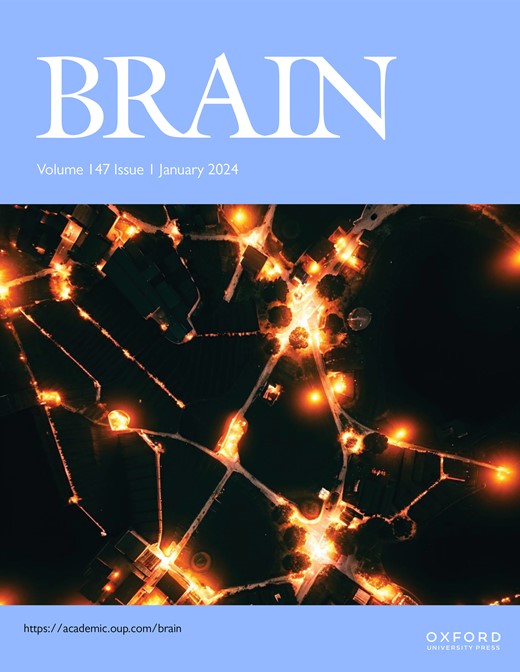DNA甲基化的破坏是靶向中枢神经系统放疗诱导的神经炎症的基础
IF 10.6
1区 医学
Q1 CLINICAL NEUROLOGY
引用次数: 0
摘要
靶向放疗(RT)对于提高癌症患者的生存率是不可或缺的;然而,它有明显的副作用,其潜在的细胞和分子机制尚不清楚。文献充分表明,RT诱导肿瘤组织的表观遗传改变,影响肿瘤的进化,但表观遗传失调是否也发生在周围的非肿瘤组织中,并导致副作用的发生尚不清楚。我们在一组独特的受辐射的病变周围脑组织样本中表征了DNA甲基组,并将其与空间水平的基因表达分析相结合。我们展示了辐照脑组织中DNA甲基化模式的差异,并鉴定了辐照后特定的炎症微环境生态位及其调节神经肽。最后,我们在脑类器官模型中显示,相同的神经肽上调以及类似的DNA甲基化改变和DNA甲基化机制的破坏,与表观遗传失调在神经毒性中起作用的解释保持一致,因此提高了它可能代表减少放疗副作用的新靶点的可能性。本文章由计算机程序翻译,如有差异,请以英文原文为准。
Disruption of DNA methylation underpins the neuroinflammation induced by targeted CNS radiotherapy
Targeted radiotherapy (RT) is integral to the increasing survival of cancer patients; however, it has significant side-effects, the underlying cellular and molecular mechanisms of which are ill-defined. It is well documented that RT induces epigenetic changes in neoplastic tissue, which impacts tumour evolution, however whether epigenetic deregulation also occurs in the surrounding non-neoplastic tissue and contributes to the occurrence of side effects is unknown. We characterised the DNA methylome in a unique cohort of irradiated peri-lesional brain tissue samples and integrated it with gene expression analysis at the spatial level. We show differences in DNA methylation patterns in irradiated brain tissue and identify specific inflammatory micro-environmental niches and their regulatory neuropeptides after irradiation. Finally, we show in a cerebral organoid model, that the same neuropeptides are upregulated as well as similar DNA methylation alterations and disruption of the DNA methylation machinery, in keeping with the interpretation that epigenetic dysregulation plays a role in neurotoxicity, hence raising the possibility it could represent a novel target for the reduction of radiotherapy side-effects.
求助全文
通过发布文献求助,成功后即可免费获取论文全文。
去求助
来源期刊

Brain
医学-临床神经学
CiteScore
20.30
自引率
4.10%
发文量
458
审稿时长
3-6 weeks
期刊介绍:
Brain, a journal focused on clinical neurology and translational neuroscience, has been publishing landmark papers since 1878. The journal aims to expand its scope by including studies that shed light on disease mechanisms and conducting innovative clinical trials for brain disorders. With a wide range of topics covered, the Editorial Board represents the international readership and diverse coverage of the journal. Accepted articles are promptly posted online, typically within a few weeks of acceptance. As of 2022, Brain holds an impressive impact factor of 14.5, according to the Journal Citation Reports.
 求助内容:
求助内容: 应助结果提醒方式:
应助结果提醒方式:


